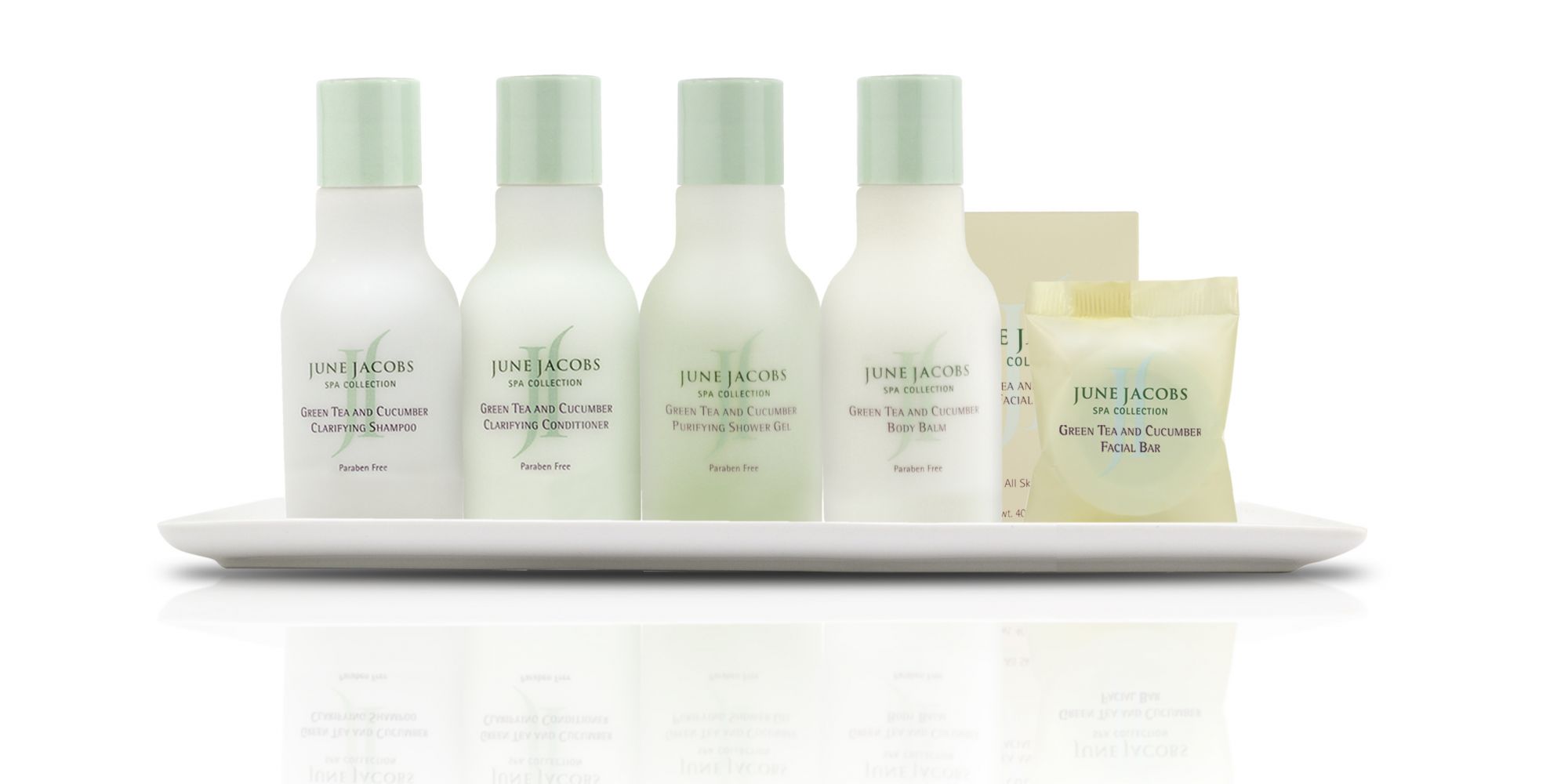
With A New Line At Sephora And Global Reach, June Jacobs Harnesses Its Heritage To Stay Relevant
Before most beauty consumers could pronounce parabens, June Jacobs excised them from her products. A skincare pioneer known for coupling scientific advancements with botanical extracts, she started a laboratory 30 years ago to develop leading-edge formulas preceding the launch of her namesake brand that’s been a staple of U.S. spas and spread abroad through hotels and retailers, notably Sephora in Southeast Asia and China. Today, Jacobs, who’s partnered with Peter Thomas Roth for a quarter century, isn’t sitting on her beauty industry laurels. Along with daughter Rochelle, she’s pushing forward with a new line called Naturally Serious rolling out to Sephora domestically next month, revamping June Jacobs’ website, and swiftly growing her business both at home and abroad. Despite her success, Jacobs admits building a beauty enterprise isn’t always easy. She’s tweaked distribution courses, had to adapt to social media and diverged with Rochelle at times on strategy, which the pair is starting to sort through in therapy. Beauty Independent talked to them about the origins of June Jacobs, control over manufacturing, international expansion, innovation, Amazon, amenities and their vision for the future.
What led to the creation of June Jacobs?
Rochelle: My mother had worked for other clinical brands before she started June Jacobs. When she started in the ‘80s working for them, there was no such thing as a natural brand, but, in her family, there was a long lineage of women creating their own products and having gorgeous skin. She knew there was a way to do that, but it didn’t exist yet. She wanted to take the latest, greatest technology and marry it with her family’s secrets.
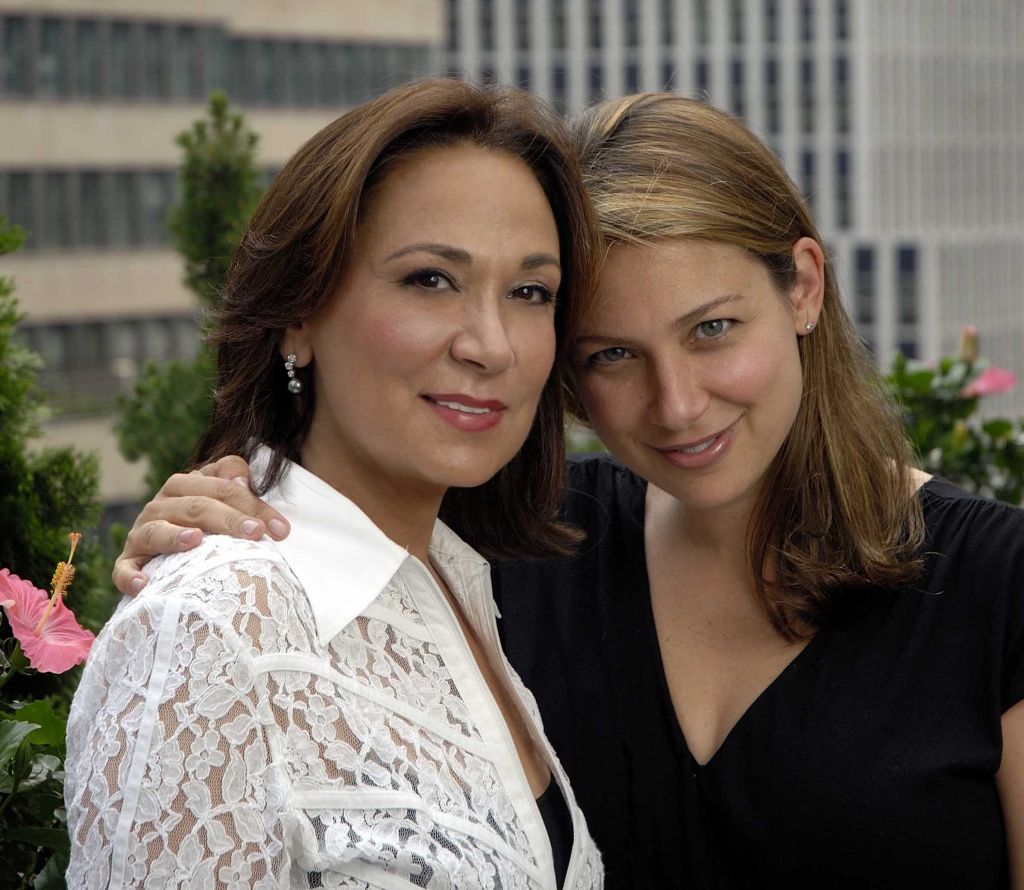
When did the brand launch?
Rochelle: It launched in the mid-2000s. We were working with some of the spas my mom had relationships with like [The Spa at] Camelback [Inn] in Arizona, and we were working with Marcia Kilgore of Bliss. We sent her lab samples, and she had a lot of input. We were working with colleagues in the industry to make sure we had the best in class products and a full range.
What products were around at launch?
Rochelle: We launched with a full line. Many of the products that are still hero products were there at the launch. For example, our Papaya [Purifying Enzyme] Masque and our Neroli Hydrating Mist. Actually, all of our masks were part of the original collection and are still bestsellers for us. We slowly evolved into the amenities business, and we went into 30,000 guestrooms at all Grand Hyatts worldwide, and that gave us a tremendous amount of exposure. The contract started in 2012, and we were able to leverage awareness globally. What came out of that was a big launch into over 200 stores in Sephora China.
Where is June Jacobs sold?
Rochelle: It’s changed dramatically. When we launched the brand, it was supposed to be complementary to clinical lines sold in spas. We were very exclusive to spas. Back in the day, retailers didn’t want you to be in spas, and spas didn’t want you to be in retailers. We tried to stay true to the spa heritage, but, with the exposure and evolution of retail and stores like Sephora really owning categories like skincare and being best in class, being at retailers and spas became complementary. We said, “Hey, listen spas, we will be able to grow your business and awareness not from only being in hotels, but from being at retail globally.” In the U.S., we limited our retail exposure because it’s our primary market for spas. We have mostly been in independent stores, Beauty Brands and Soft Surroundings in the U.S. In countries outside of the U.S., we are working directly with Sephora.
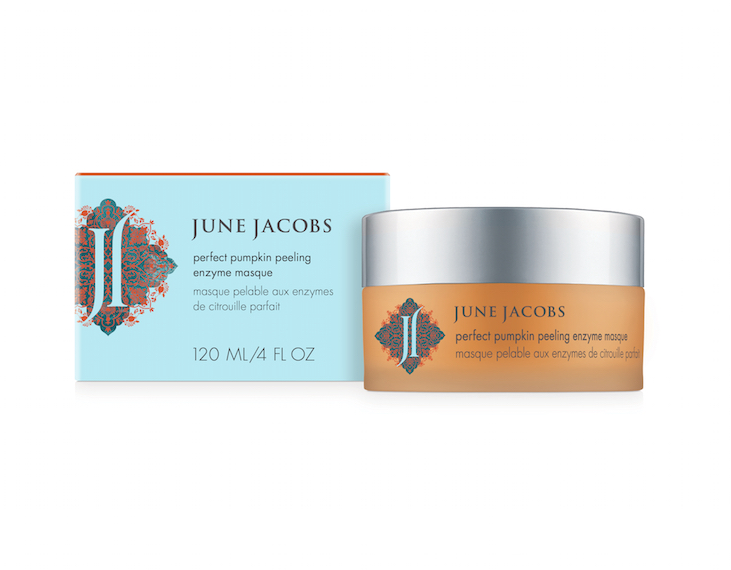
You are introducing a new line, Naturally Serious, at Sephora in the U.S. next month. Can you tell us about it?
June: Our mission for Naturally Serious is to make natural, efficacious beauty affordable and accessible. Clean beauty is having a moment, and there is an opportunity to prove in the market that naturally-derived ingredients can stand up to mainstream alternatives. Natural has always been in our brand DNA. We recognize that customers are becoming more savvy pushing our industry in a direction toward transparency. We want to give that to this group of consumers. I pushed our team to innovate with an extensive free of list, further than we’ve ever pushed before. We’ve come up with our own comprehensive list of banned, ambiguous and debatable ingredients that we promise to never add into our products. This list is an ongoing evolution. As we grow, we may add on as new scientific research comes about ingredients with potential harmful risks. Life is full of risks, but there are some risks we’re just not willing to take, especially when it comes to our skin health.
How do you handle production?
Rochelle: My mother had this idea to own and operate manufacturing, and everybody thought she was crazy. She had had it with being second to everyone else in the innovation pipeline. We built an entire R&D team and facility. What that allows us to have is innovation well ahead of our competition and quality control.
How do you keep innovating?
June: We have four full-time chemists that service the June Jacobs brand and the Peter Thomas Roth brand, and we also do private label for a bunch of prestige brands. We have meetings where we discuss the pipeline of what we are going to be doing for, for example, the first quarter, second quarter and third quarter of 2019. We work with really smart people who really understand this industry.
Rochelle: The access to raw ingredients that the chemists we work with have is incredible. They come to us with things that they have been researching that aren’t in the industry yet, and we will also push them to think about what we could offer that’s the latest and greatest. We will say, “We love this formula, but it has chemicals in it that we would like to take out.” We look at our marketing ideas and see what matches there are with [raw materials and technology] to determine what we can bring to the market that will be a success.
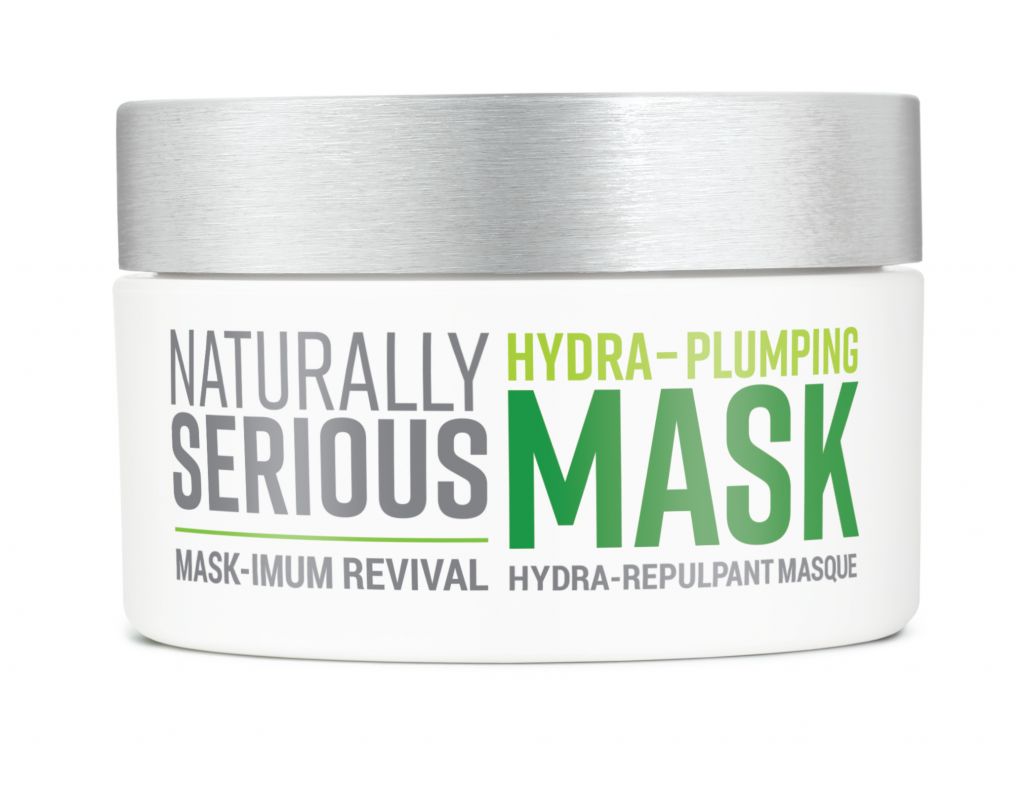
What about your own e-commerce site, how do you handle that?
Rochelle: We will be relaunching our website at the beginning of 2019, which is a big deal for us. Right now, it’s not mobile-friendly, and it’s not really that usable. It’s so frustrating to me, and I can’t imagine how frustrating it is for someone else. We are going to be taking it from just a shopping experience to a content experience. It will change the way we look at the e-commerce business. For our spas and retailers, they will be able to use our website to help educate their consumers and guests, and that will help all of us. We will continue to have our own following, but we are trying to grow their businesses as well.
Often, the formulas for hotel amenity products are different from brands’ formulas elsewhere. Is that the case with June Jacobs?
Rochelle: We run it slightly differently than most brands. My mother and I are very, very involved in it, more than others. Our third-party distributor works with us. We use them as sales people, but we assert ourselves into the equation so we have a relationship with, for example, Hyatt. It’s all our formulas, and the decision-making process is a joint process.
How do you evaluate the impact of your amenities program?
Rochelle: I believe it gets our name out there and helps us gain awareness. It’s not something we can measure. We tried through Google Analytics. Our [customer base as gauged through] Google Analytics has turned more global, but that’s for many different reasons. Amenities probably do elevate our e-commerce site, but, at the same time, we’ve been growing globally [at retail], so it’s hard to say what came first. For us, it’s not a profit center. We really use it to build relationships and awareness.
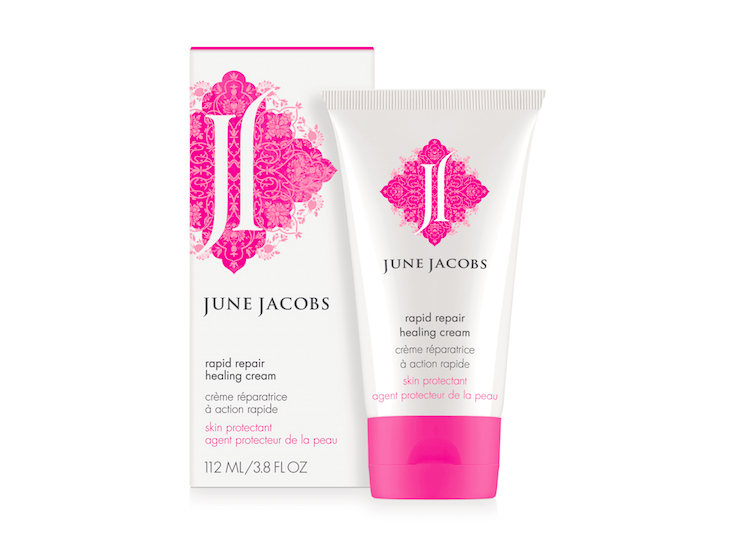
What’s one of your favorite products from your line?
June: I was diagnosed with early-stage breast cancer and, unfortunately, went through radiation and my skin suffered a terrible breakdown. I was given some generic product that didn’t help me at all. Every day that went by, my skin become more cracked. It was a horrific experience. While I was going through it, I called my chemist and said, “Listen, I have come up with this formula.” I didn’t know if she could do it. She was on bed rest because she was having twins, but the formula was made for me. It helped the radiation dermatitis I had gotten and, after the radiation, you couldn’t tell the left breast – the radiated breast – from the right breast. After that, my doctor wanted to get tubes of it, but I wasn’t making it. Now, it’s called Rapid Repair Healing Cream, and it’s absolutely life-changing. We did clinical testing on it, and we got incredible results. It provides 24-hour moisturization. It’s something very near and dear to me.
Rochelle: We had the most expensive testing ever done on a product up until that point for that product.
Is June Jacobs on Amazon?
Rochelle: Yes, it was a big decision. It was something we spent a lot of time talking about internally before we decided to go ahead and do it. At the end of the day, we really felt it’s the way people are shopping, and we have to leverage it. I actually buy everything on there, so I thought it was a great idea, and we get to control our messaging, which was super important to me. Before we were on there, there were maybe 20 vendors selling us [on Amazon]. We couldn’t control the pricing. Now, we are able to work with Amazon. We say, “Here is our retail price. We aren’t going to be discounting anything.” That was a big change. Getting everybody off of there that was hurting our business was important. By going on Amazon, it has allowed us to get rid of the discounters.
Have you changed June Jacobs’ pricing since it started?
Rochelle: When we entered the Asian market, we pushed them down a bit. When you have smaller distribution, your costs are higher. So, when we went into larger distribution, we wanted to tack the savings on for our customers, and give them the same quality they were getting before.
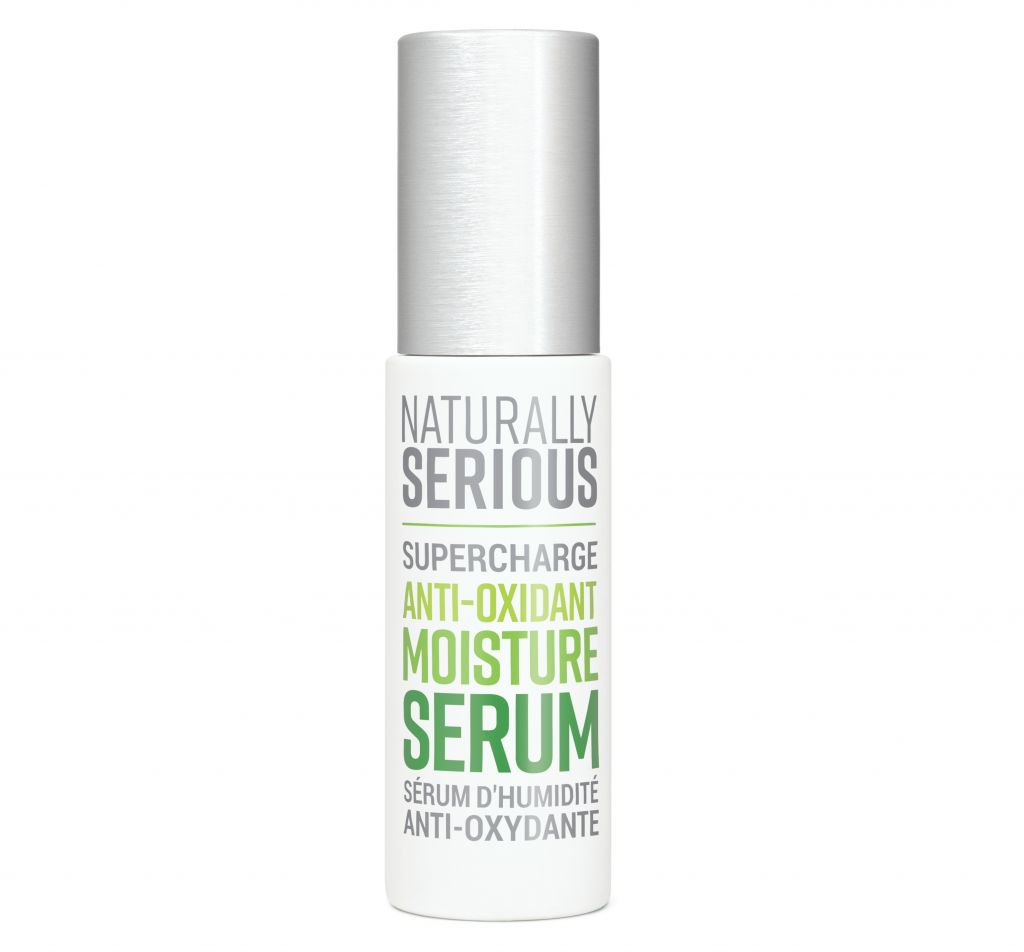
How much of the business is done overseas today?
Rochelle: I would say it is probably 50%. It’s changed everything. We have to make sure, when we are launching a product, that it makes sense for the markets that we are going into with it. We want to make sure it’s something that’s going to be effective in the markets we are focused on, and it’s what consumers there are looking for, even if they don’t know it yet.
How fast has the business been growing?
Rochelle: The growth has been well over 20% domestically and, because of the growth internationally, it’s north of that overall.
Are there products than sell better overseas than they do here?
Rochelle: We thought we were going to see a much more significant difference. We don’t launch certain products in markets where we don’t think they are going to do well, though. For example, the Hydrate & Nourish products wouldn’t do as well in a spa [in the U.S.] as our Age Defying products, but Hydrate & Nourish is super important for the millennial in China that’s looking for hydration. When you have over 100 products, it’s easy to find ones for different markets.
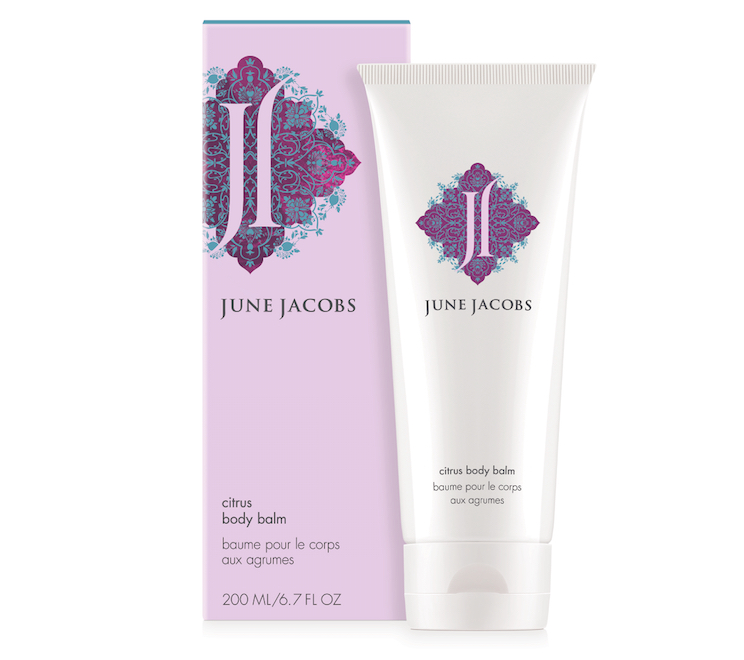
What’s key to being successful abroad?
Rochelle: The right partners, whether you have a direct relationship with a retailer like Sephora or you are going through a distributor. We are signing up a distributor in Asia called Luxasia. They have local marketing teams in each of the countries they are in, and they have really long-term relationships with the different channels we are looking to go into. We are able to leverage their relationships, and they understand the culture of our brand to make sure we are successful in the markets where they are taking us.
Is June Jacobs headed into any new distribution channels?
June: We are going to be in Lenox Hill Hospital and providing them an elevated patient experience. It’s a new venue for us. We have never been in hospitals. It could be a game changer for us.
Rochelle: One of the things I’m open to is working with lifestyle retailers versus straight skincare retailers. I think we belong in smaller, boutique experiences. I will give you an example that’s not really the greatest example. When Scoop was in New York City, they had hip, cool things, and we had some of our top SKUs in there. The prices were accessible, and we liked having our products in a hip, cool place.
What is it like to work with each other?
June: When you work with your child every day, as much as you love them, it can be very hard. You have to take each day and hope for the best.
Rochelle: The biggest challenge for me as a daughter is that sometimes I feel she talks to me like I’m 6-years-old with pigtails in my hair when I’m making huge decisions.
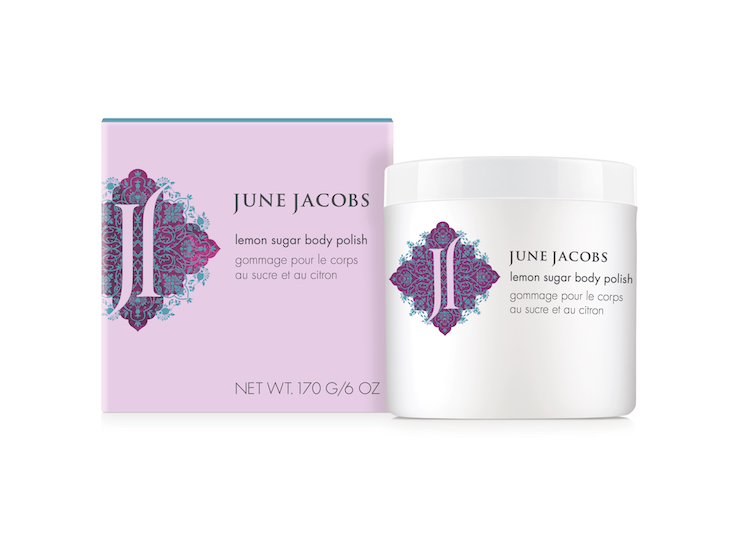
How long have you worked together?
Rochelle: Since 1999. I will give you the 30-second story. I was working on Wall Street at Lehman Brothers, which is something my mother wanted me to do, and I loved it. But I got burned out, and I went to work at Viacom in corporate finance. I used to stop by her place on my way home, and we’d walk home together. I would see everything she was doing. I said, “I think I could make a huge difference.” I put together a PowerPoint, and I made my mother and Peter sit through it. [Initially,] my mother said no and Peter said yes, but she was willing to give it a shot and hired me.
Where do you hope June Jacobs is five years from now?
June: I hope to have wider retail distribution at all the Sephora locations globally, not just in Southeast Asia and China.
Rochelle: We really want to find the right partners to grow. We joke that, while we do things differently, we have the same goals. If she got an order from every single retailer in the world, she would get it done right away, whereas I would rather tackle things one market at a time. Regardless of how we grow, we want to pay attention to the changing environment. The conversation we are having today would have been very different five years ago. We have to be really educated on what’s happening and make sure we are not five years behind on any platform. We want to be relevant for whatever is coming next.

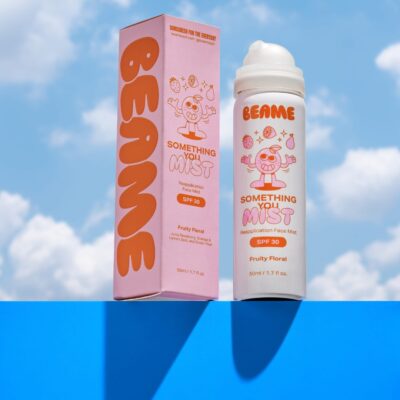
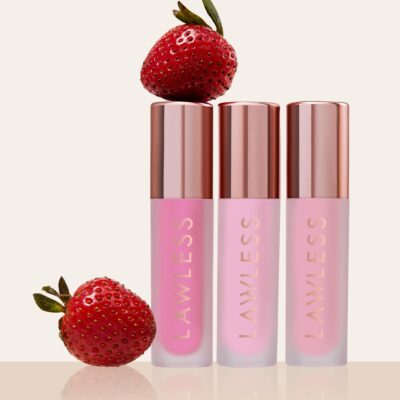
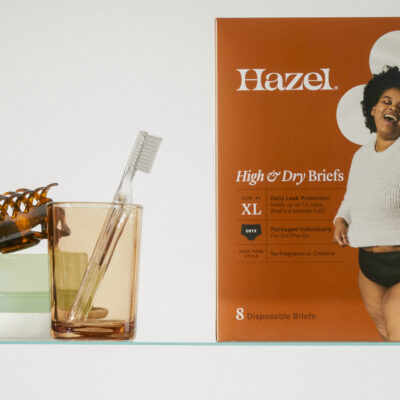
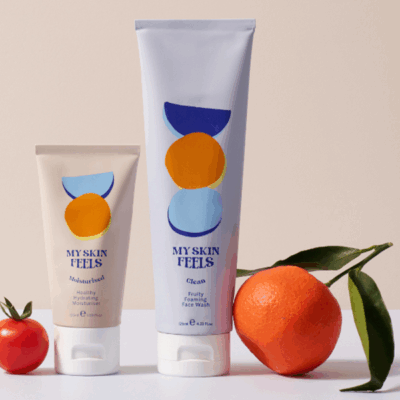
Leave a Reply
You must be logged in to post a comment.